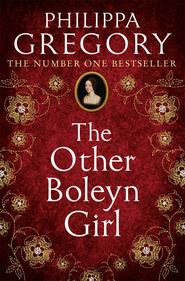По всем вопросам обращайтесь на: info@litportal.ru
(©) 2003-2024.
✖
A Respectable Trade
Настройки чтения
Размер шрифта
Высота строк
Поля
The coach was prompt; it was standing at the door as Frances came down the stairs wearing a large picture hat crowned with two fat feathers. She had changed into a walking dress: a greatcoat dress with a wide collar and caped sleeves. Mindful of the plainness of Sarah’s attire, Frances was rather relieved to find only Josiah waiting for her at the door, and Sarah shut up in the parlour.
‘I was afraid you would have forgotten,’ she said. ‘Did you find your tobacco?’
‘The planter in Jamaica cheated us, or made a mistake,’ Josiah answered. ‘And the captain had it wrong on the cargo manifest. They were loading in a hurry. I had ordered him to make haste, it was the last of the new crop, and this is what comes of it.’
‘I am sorry to hear it,’ Frances said uncertainly. She felt she should condole with him, as one would to a man who has suffered a loss. But her training to avoid the vulgar topic of money was too powerful.
‘I shall write to the planter and send the letter by Rose when she sails,’ Josiah decided. ‘Within fourteen or fifteen months she will be back in port again and it should be set right.’
‘Gracious,’ Frances said.
‘And I will carry the loss for the whole of that time,’ he said irritably. ‘Just as I have to offer credit to the planters for two years at a time.’ He looked at her and his frown cleared. ‘This means nothing to you. Let me take you for a drive.’ He handed her up the little step into the carriage. Frances unfurled her parasol against the bright summer sunshine and tipped the shade over her face.
‘Go to Queens Square first,’ Josiah ordered the driver. ‘This is where I propose we should buy a house,’ he explained to Frances. ‘We have to go round through the old town, but pay no attention to the dirt and the noise. Queens Square is very smart indeed.’
The carriage moved forward, jolting on the cobbles, sailors and dockers begrudgingly giving it room. The street sellers eyed Frances’s fine clothes and one girl, hawking watercress from a tray, turned her head and spat on the ground.
They drove down the Back Lane, the overhang of the houses above their heads so close that the streets were in permanent twilight, in a fog of foul air. The sun shone in a brilliant stripe down the centre of the street but the houses and the foul-smelling middens were in dank shade. Great wooden beams over their heads braced apart the houses on opposite sides of the street, which looked as if they were ready to topple together. The broad gutter in the centre of the road was an open drain, thick with slops, mud and garbage, stinking in the heat, breeding swarms of fruit flies. People swore as the carriage lurched past, splashing them with slurry. The horses scrabbled to find their footing on the greasy stones and the carriage bumped and dipped; the road was almost impassable. Frances was afraid that the horses would founder. She gripped her parasol a little tighter and held one gloved hand to her face, trying to block out the evil stink of the lane.
Every doorway, every archway was an entrance to a workshop. There were woodcarvers and sempstresses, there were coopers and workers of metal. There was a wigmaker who also drew teeth, there was a small dingy apothecary shop doing a roaring trade in laudanum and neat opium. Every other house seemed to be a ginshop, every third house was a brothel. It was a mediaeval city of timbered overhanging houses suddenly crowded to bursting point with small dangerous industries.
Frances, who had spent all but two of her thirty-five years in the country vicarage, stared in horror from one ominously dark doorway to another. The white-faced occupants stared back at her, and someone shouted an insult at the carriage and threw a handful of mud.
‘It is rough,’ Josiah conceded. ‘Bristol is a city of labour, my dear, not leisure.’
‘How can people bear it?’
He gave a snort of laughter. ‘This is a prosperous street, my dear. If I showed you the colliers at Bedminster then you would see something to shock you. They live like animals in their own filth and no person of any wealth goes near them. They live in a world of their own, without parson or magistrates – totally outside society, totally without law.’
Towering on the hill above them, in abrupt contrast to the clutter of roofs below it, was the ornate highly decorated church of St Mary Redclift at the head of a soaring flight of stone steps. But they turned away from the spire and back towards the city, passing over the bridge.
‘It would have been quicker to go across the river by the ferryboat,’ Josiah explained. ‘Queens Square is directly opposite my dock. When we have our house I will take a boat over every day. The lad will row me over for a ha’penny each way.’
‘I am sure these streets cannot be healthy,’ Frances said. She tried to keep the dismay from her voice.
‘They are pestilential, madam!’ Josiah exclaimed. ‘If you are not killed by some fool setting fire to your house, or felled by someone dropping something on you, or poisoned by some manufactory, you will be destroyed by cholera or typhoid or both. The foul water and the summer sun are a fatal combination.’
‘I wonder that your family chose to live here,’ Frances said faintly.
Josiah laughed shortly. ‘We did not choose! We were not in a position to choose! We bought what we could, where we could. My father bought the warehouse and dockside from his profits as a privateer and that was where we lived. We were glad enough to have a business to run and premises to call our own.’
‘He was a privateer?’
Josiah nodded and then laughed abruptly at her shocked face. ‘Don’t look so aghast, Mrs Cole, he was a privateer, not a pirate! He had a letter from the Crown licensing him to attack French shipping. He took out his one leaky old boat and captured a French brig. That was our first chance. She was called the Marguerite. We paid our dues to the Crown and kept her and traded with her. It was the founding of our fortunes, the founding of our trading line. When she sank we called our next boat Daisy after her.’
Frances nodded. The carriage rolled on to a wooden bridge. Looking down, she saw the water rich with waste. Litter, garbage, excrement, and all the flotsam and jetsam of a busy port bobbed around the pillars of the bridge on the rising tide. The carriage bumped along the quay on the northern side of the river and then the road ahead opened out with sudden surprising grace. There was an avenue of young plane trees ahead, their broad leaves still fresh. There was a smooth green lawn in the centre of the square, there was a proud statue of a man on a galloping horse. The stink from the river was less strong, and the noise of the Backs was left behind them.
‘Queens Square,’ said Josiah with satisfaction. ‘As good as any Crescent in Bath, eh?’
He was exaggerating, it was not as good as Bath. It lacked the easy regularity of those fine terraces, it lacked their confident scale. Part of the square was built in the golden stone of Bath but part of it was red brick, and the profile of the roofs and the detail on the houses was idiosyncratic – each house an individual. But it was a well-proportioned square lined with young trees, divided into four by long avenues running north to south and east to west. At the centre of the square the paths crossed and the statue made a handsome centrepiece. The houses were new; some looked like London houses in smart red brick with pointings of white mortar and corners of white stone. At the east end was an elegant large building flanked by two wings in thick yellow stone: the Custom House.
The carriage drew up before the first house in the south-west corner, one of the biggest and most imposing in the square. ‘This is where we shall live,’ Josiah announced. ‘This is where I have been aiming for years.’
Frances looked at him in surprise. She had never before heard of a man desiring anything more than to stay in the position to which he had been called. She had heard men complain of the decline of manners; but never to seek change. Her father had preached that it was God’s will for a man to remain where he was born, a good Christian stayed where God had been pleased to put him. Josiah was the first man in her experience to express an ambition – to want something more than what he had been given. It was a revolutionary doctrine.
‘You have been aiming for it?’
‘My father was born on an earth floor in a hovel,’ Josiah said. ‘No more than a peasant. My sister in a collier’s cottage, a coalminer’s daughter. I was born on a stone floor in a warehouse. My son will be born in a proper bed, in a proper house. My family is on the rise, madam. Before the century is out we will be known as gentry. We will have a country house and a carriage. This is but a step on our way; not our final destination.’
Frances flushed at his mention of a son but Josiah had no idea that he was indelicate. He pointed to the grand house, the best house on the square, three red-brick storeys high with little attic windows let into the roof. Long white stone columns ran the length of the windows on each storey; above each window was a carved face. The double doorway was large and imposing, flanked by more pillars. Stone-carved gateposts and wrought-iron railings shielded the front of the house and emphasised its importance. ‘This is it, Mrs Cole. This is our house-to-be. I happen to know that it is coming up for sale and I shall bid for it, you may be sure. And I shall have it. No-one will outbid me, cost what it will. It is generally known that you and I are wed. It is generally known that I am looking for a town house to establish my family.’
Frances looked around the square, trying to imagine what it would be like to live there. A curtain in a front parlour beside them twitched and dimly she saw a woman step back from the window. It would be a little community, ingrowing and inbred. There would be small feuds and long memories. Frances did not mind. She had lived in a country village, dependent on the good will of the lord, her uncle. She knew how small communities worked.
‘We should drive on,’ she said gently to Josiah. ‘We will be noticed if we stay here any longer, looking.’
‘So?’
‘These people will be our neighbours,’ she explained. ‘We wish them to have an agreeable impression of us.’
He was about to argue but she saw him hesitate and then he nodded. ‘You know best, Mrs Cole,’ he agreed. ‘You are the one to teach me. It shall be as you wish. Now, is there anywhere else you would like to see?’
‘I don’t know the city at all,’ Frances said. ‘I have never visited here. I had some friends who drove out to a picnic and looked at the Avon gorge. They told me it was sublime.’
Josiah leaned forward and gave the order to the driver. ‘We can go and look at the gorge,’ he said. ‘You will not think it so sublime when you understand what it costs me in barge charges. We can drive to the Hot Well at the foot of the gorge. I have a particular interest in it.’
The carriage turned out of the square and bumped along yet another dockside beside another river.
‘This is the Avon again?’ Frances asked.
‘The River Frome,’ Josiah corrected her.
‘It is as if we live on an island,’ Frances said. ‘Surrounded by water.’ She nearly said, ‘foul water’.
‘The old city was a defensive site ringed by the two rivers, the Avon and the Frome – like a moat,’ Josiah told her. ‘Now it is all docks.’
They waited for the drawbridge ahead of them to be dropped and then the carriage bowled over the wooden planks and turned left, away from the docks.
Frances looked ahead as for the first time the city seemed something more than a dockside slum. The pretty triangle of College Green was before them, with two churches on their left. The College church was an imposing building with the Bishop’s Palace behind it. Frances heard birdsong – not the irritable squawk of seagulls, but the summery ripple of a blackbird’s call. Looking up, she saw swallows and housemartins swooping and wheeling around the cathedral.
The thick foliage of the elms threw dark green shadows over the road and as they drove up the steep hill the air grew fresher and cleaner and the sun shone brightly on the new buildings.
‘Oh, if we could only live up here!’ Frances exclaimed. Set back from the track were occasional terraces of houses in soft yellow stone, built in the style that Frances liked – plain regular and square.
Josiah shook his head. ‘It’s a whim. One or two people are building here but no true merchant will ever move away from the city. The river is our life blood. Clifton is too far to go. It is country living – not city dwelling at all. There are people buying land and putting up houses but it will never be the heart of the city. We will always live along the river banks, that is where the city always has been. That is where it always will be.’
At the top of the hill they forked to the left, skirting a high hill and dropping down towards the river again.
‘But if we had a carriage you could drive down to your work,’ Frances observed, her voice carefully neutral. ‘And these are handsome houses, and very clean air. I love to breathe clean air and my health needs it.’












